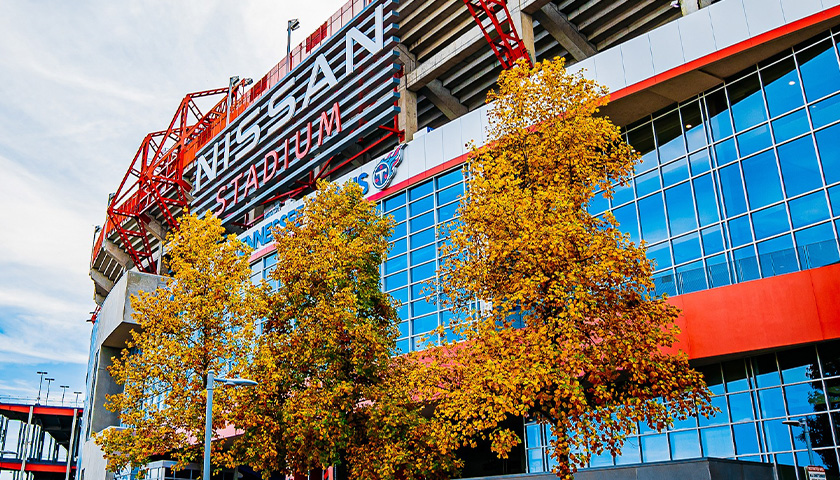by Jon Styf
Metro Nashville’s East Bank Stadium Committee heard an overview of its obligations for stadium repairs, including the legal department’s definition of the key “first-class condition” term at its most recent meeting.
The terminology is key as the committee evaluates the city’s options related to the current Nissan Stadium and the Titans’ proposal for a new $2.2 billion stadium, which could include as much as $1.5 billion in public funding.
Margaret Darby, the Director and Special Counsel in the Metro Nashville council’s legal office, said on Thursday that the lease requires Nashville to keep the stadium in compliance with the law, in good condition and repair with normal wear and tear expected and having the level of improvements and technology “from time to time found at a reasonable number of comparable facilities.”
Those stadiums are any completed within 10 years before or after Nissan Stadium was completed on July 30, 1999.
“Whenever I hear normal wear and tear accepted, my mind immediately goes to carpet,” Darby said. “You’re going to walk on the carpet and you’re going to have normal wear and tear. That’s not something that would have to be done in order to keep something in a first-class condition.”
Darby said that the new technology clause applies to new technologies that are in a majority of the comparable facilities.
“I think the main gist of this is that we are not required to pay for things that are early adopter-type technology,” Darby said. “So, if the new thing was to have a screen in the back of every seat so you can watch it while you watch the football game, that would not be something that we would be required to pay for until a majority of the comparable facilities had done it.”
The lease terminology has become key after Titans CEO Burke Nihill estimated at a sports authority meeting in May that the city is obligated to pay $1.839 billion in repairs and upgrades before the end of the team’s current lease.
Metro Nashville plans to hire Venue Solutions Group for at least $250,000 to conduct a study, due to be completed in November, on those obligations after the group estimated in 2017 that the city would need to complete $293.2 million in capital improvements over 20 years on the stadium.
“(In 2017), I believe that VSG was just doing an assessment of the systems in the facility to determine what types of systems were in there and the life of those systems and when they might need to be replaced,” Darby said. “… I’m not sure they were looking at it from the lease perspective as much as they were just … here’s a building, here’s what’s in it and here’s what future maintenance and repairs and improvements and replacements might look like.”
The city plans to attempt to obtain revenue bonds to pay for its estimated $1 billion in funding, which will come from state and local sales taxes at the stadium and surrounding district along with a 1 percentage point hotel-motel tax increase.
Council member Sean Parker added that any revenue bond shortfalls would be Metro Nashville’s responsibility to pay using general funds.
Committee Chair Bob Mendes noted that the city will not go to a referendum before obtaining bonds because that ability only comes from general obligation bonds, not the revenue bonds that have been proposed for the stadium project.
The committee is scheduled on Aug. 18, when the group will look at the city’s repair obligations under its current lease.
On Aug. 31, Mendes plans to invite Mayor John Cooper’s office and the Titans to the committee’s meeting to provide an update on the potential stadium deal.
– – –
Jon Styf is an award-winning editor and reporter at The Center Square who has worked in Illinois, Texas, Wisconsin, Florida and Michigan in local newsrooms over the past 20 years, working for Shaw Media, Hearst and several other companies.
Photo “Nissan Stadium” by Nissan Stadium.








